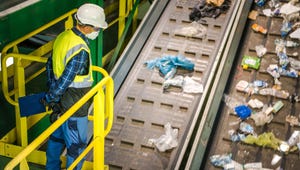Earlier this week, European Bioplastics (Berlin) made ‘greenwashing’ claims against other sectors of the plastics industry slamming them for claiming compliance for their products with EN13432. The key component of the EN13432 standard is the need to recover packaging waste on the basis of industrial composting.
October 23, 2015
“Lately, European Bioplastics is noticing an increasing malpractice by producers of fragmentation additives for conventional plastics referring to the European standard for industrial composting, EN 13432, when marketing their products. As is well known, such products do not fulfil the requirements of the EU norm for industrial composting of plastic products. Consequently, European Bioplastics considers this a severe case of greenwashing.”
What followed after was a heated response from the Oxobiodegradable Plastics Association (OPA).
"By contrast, oxo-biodegradable plastic is designed to biodegrade if it gets into the open environment, and no reputable oxo-biodegradable additive supplier would claim that it will comply with EN13432. Suppliers of any kind of plastic do not, however, print anything on products made with their plastic. This is done by the companies whose products they are," said OPA in a statement.
"European Bioplastics are lobbyists for the hydro-biodegradable plastics industry, which needs to consider its own misleading marketing claims. For example, their plastic is marketed as compostable, and an ordinary consumer would therefore believe that it converts into compost—when in fact EN13432 requires it to convert into carbon dioxide gas within 180 days. This contributes to climate-change but creates nothing of value for the soil.
"Secondly, their plastic is described as biobased which would lead consumers to believe that it is derived wholly from vegetable matter when in fact these plastics are made with up to 40% petroleum-derived material. Thirdly, their plastics are described as renewable, but they are not renewable when you consider the fossil fuels consumed in the agricultural production and polymerization processes."
The OPA added that hydro-biodegradable plastics are not suitable for recycling with ordinary plastics and vegetable-based plastics generate methane when exposed to anaerobic conditions in landfill.
"Further, the Federal Trade Commission of the USA has said that it is not sufficient to show that a test item had complied with ASTM D6400 [or EN13432]. The Commission found that those standards likely do not typify compost facility operations nationwide. Rather they reflect optimum conditions and ignore wide variation in actual facility operations. Because of these variations, the test protocols likely do not replicate typical compost facility environments. Therefore, consumers whose local facility [if they have one at all] operates differently than the ASTM assumptions would be deceived if the item were incapable of being composted."
I'm sure we haven't heard the end of this. Stay tuned...
About the Author(s)
You May Also Like


